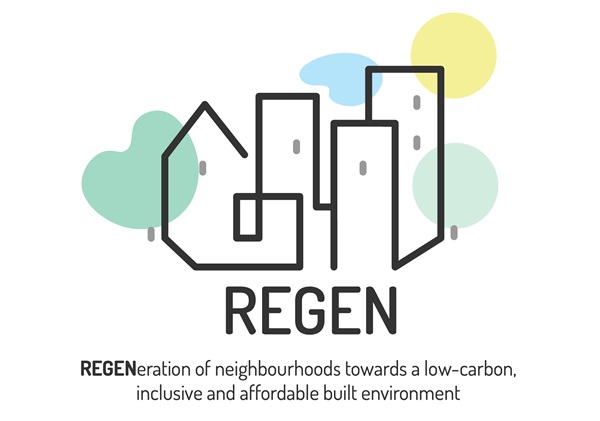
The Luxembourg Institute of Science and Technology (LIST) has announced its coordinating role in the four-year Horizon Europe-funded research programme, REGENeration of neighbourhoods towards a low-carbon, inclusive and affordable built environment.
The project was publicly launched on Wednesday 31 January 2024 in Beckerich, which will serve as a testbed for the project while benefitting from the developments.
With a grant of €7.5 million from Horizon EU, of which €2.6 million are allocated to Luxembourg players including LIST, REGEN aims to revolutionise urban development towards environmental sustainability, economic revitalisation and social inclusion.
"Our Built Environment, i.e., the human-made surroundings that provide the setting for human activity, lays a critical role in climate breakdown, but through restorative and regenerative approaches, we can we can turn it into part of the solution to the climate crisis," said Sylvain Kubicki, Lead Research and Innovation Associate at LIST. "REGEN will leverage participative urban planning, digital innovation, and holistic methodologies to drive positive change in our neighbourhoods."
The REGEN project aims to introduce a comprehensive methodology and framework called the Assessment Framework for Urban Regeneration. This framework’s goal is to validate a catalogue of 50 urban regeneration interventions, estimating their revitalisation potential and monitoring their progress using digital twins and sustainability analysis methodologies. Notably, REGEN will prioritise the involvement of end-users and stakeholders through citizen science, participative design approaches and living labs, LIST emphasised.
In Luxembourg, the town of Beckerich will serve as a testbed for the project, with LIST utilising its participative technology, Managing Urban Spaces Together (MUST), to engage citizens and stakeholders in the urban planning process. This initiative, previously funded by the Luxembourg National Research Fund (FNR), aims to strengthen citizen involvement. LIST added that this initiative will be applied to key issues such as circularity in the construction sector and the energy sector, with studies planned on the Beckerich heating network.
"LIST is committed to leveraging Luxembourg's expertise and value chains to drive sustainable urban regeneration," said Sylvain Kubicki. "Through REGEN, we aim to empower communities, inform policy orientations, and pave the way for broader deployment of sustainable urban interventions."
REGEN will implement its solutions in four demonstration sites, continuously monitoring the energy, mobility and circularity of individual buildings, streets and districts. The project will upscale its findings to the city level, informing key policy directions and contributing to the broader transition towards sustainable urban development.








